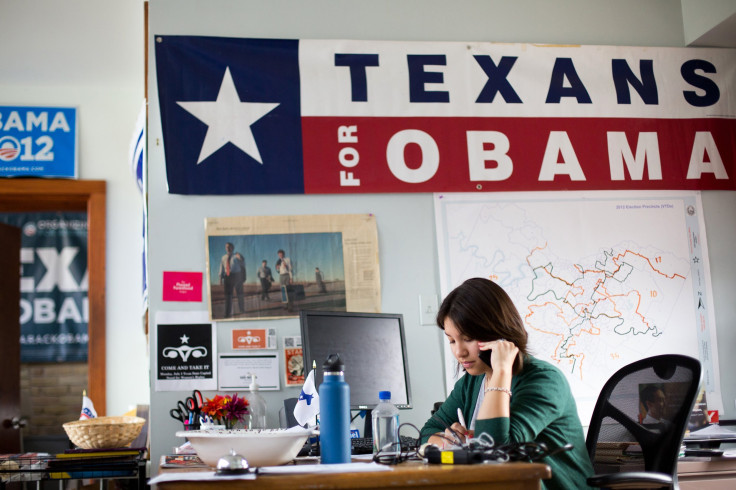Supreme Court Allows Texas To Use State's Controversial Voter ID Law

Texas can enforce its controversial new voter-identification law in the November general election, the U.S. Supreme Court said in an unusual Saturday-morning order. The court nixed an emergency request by the U.S. Justice Department and civil-rights groups that the state be banned from requiring voters to present certain kinds of photo ID cards before being allowed to cast their ballots, the Associated Press reported. Early voting in Texas begins Monday, CNN said.
Enacted in 2011, “Senate Bill 14 may prevent more than 600,000 registered Texasvoters (about 4.5% of all registered voters) from voting in person for lack of compliant identification,” Associate Justice Ruth Bader Ginsburg wrote in her dissent of the order. “A sharply disproportionate percentage of those voters are African-American or Hispanic.” Associate Justices Elena Kagan and Sonia Sotomayor also dissented.
The law was struck down by a U.S. District Court last week, but the 5th U.S. Circuit Court of Appeals subsequently put the decision on hold, as Politico reported.
The law lists seven forms of approved ID documentation, AP said. They encompass concealed-handgun licenses, but do not include college student ID cards, which are accepted in other states with similar measures.
“The greatest threat to public confidence in elections in this case is the prospect of enforcing a purposefully discriminatory law, one that likely imposes an unconstitutional poll tax and risks denying the right to vote to hundreds of thousands of eligible voters,” Ginsburg wrote in her dissent.
In other recent actions associated with the November general election, the Supreme Court allowed Ohio to cut back on early voting and permitted North Carolina to eschew same-day registration and the counting of votes cast in the wrong precinct, the New York Times reported.
© Copyright IBTimes 2024. All rights reserved.












